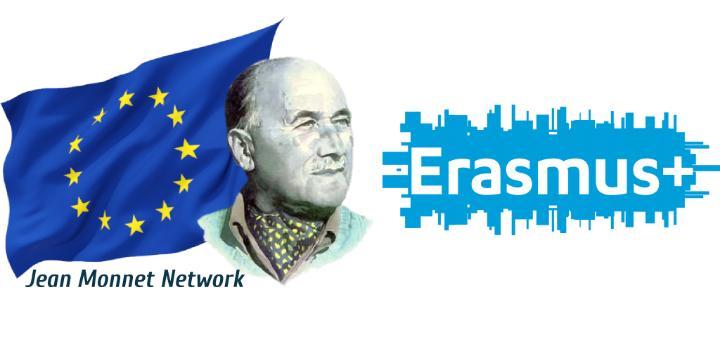International Business, Marketing & Strategy (IBMS)
IBMS academic department
IBMS academic department brings together an energetic, interdisciplinary group of academics and PhD students who have a significant body of diverse research and business expertise. At a top-level our team is engaged with sustained, critical enquiry in the areas of international business, marketing and branding.
Within this, our research interests include; key value drivers in emerging markets, the application of big data in social science and the impact of pervasive technologies. Much of our research also includes the cross-cutting theme of ethical and responsible management which feeds into the School of Management’s overall focus on making positive societal impact.
IBMS’s research activities seek not only to significantly advance the theory and practice of our key research areas but also support the school’s mission to impart research-informed and research-led teaching to our students.

Who do we work with?
We work with various stakeholders including academics in partner institutions, policy makers, diplomats, think tanks and international organisations. We have a very successful track record of securing, engaging in and managing a range of interdisciplinary and multi-partner funded research projects, including those with EU-EAC, AMENET and the JFBS (Japan Forum of Business and Society), Commonwealth AMDISA (Association of Management Development in South Asia) and UNICEF.
How do we work?
Our research is delivered through our extensive international research partnerships, commissioned consultancy work, knowledge transfer initiatives as well as through executive training and education programmes. We work extensively with international partner institutions in East Africa, Europe and China through the EU-EAC on event-intensive research and training projects. We have disseminated our research through workshops in Kenya, Rwanda, Uganda and Tanzania and through high-profile conferences in Addis Ababa, Shanghai, Beijing and Brussels.
IBMS takes a highly interdisciplinary approach, operating without departmental divisions and restructuring ourselves around research. This structure encourages cooperation between staff and students, strengthens the ties between teaching and research activities, and turns collaborative, interdisciplinary working into the norm. Based on interdisciplinary expertise and collaborations, we administer taught courses using research to inform course creation and delivery.
Research areas
The Academic Department offers sustained, critical inquiry into the areas of international business, marketing and strategy (IBMS).
IBMS staff members are particularly active in the following areas:
- Impact of foreign direct investment and international trading
- Internationalisation and international joint-venture
- Foreign language diversity in international business
- Regional development and integration (Europe, Africa and Asia)
- Branding, social networking and value creation
- Digital and social media marketing
- Ethics, corporate social responsibility
- Responsible management education
- Integrated marketing communication
- Social entrepreneurship
- Big data in social science
- Green marketing
- Service marketing
- Consumer behaviour and their acculturation trends.
Taking a lead in the Jean Monnet Network
IBMS Senior Lecturer, Dr Jean-Marc Troille, is the Lead Partner for the Jean Monnet Network ‘The EU, Africa and China in the Global Age’. Issues of integration and cooperation are at the core of its action. The ‘EAC’, in the project’s acronym, refers to the project’s two central agendas: the East African Community (EAC) as an example of regional economic integration; and the broader context of ‘Europe, Africa and China’.
The Jean Monnet Network is a research and training project funded by the EU Commission. It supports a unique endeavour to foster dialogue between academia and policy makers in a trilateral way between the European Union, Africa, and China with a view to building sustainable societies in Africa for the benefit of all parties. This project is at the heart of the University of Bradford’s vision on sustainability.

Sustainable entrepreneurship in Sub-Saharan Africa
IBMS Researcher, Dr Samuel Adomako, is partnering with leading researchers at the University of Kent and the University of Ghana to investigate the relationship between sustainability practices and entrepreneurial success in Sub-Saharan Africa.
With entrepreneurs facing stakeholder pressures, can the concept of sustainability live up to expectations of entrepreneurial success in Africa? This ongoing initiative, in collaboration with researchers from the University of Kent and the University of Ghana, delves into the outcomes of sustainability practices on entrepreneurial success such as profitability and social performance. A better understanding of the outcomes of sustainability practices of entrepreneurial firms in Africa is important given their fast growth, a crucial role for development, and aggregated environmental impact in sub-Saharan African countries.
Read more about Sustainable entrepreneurship in Sub-Saharan Africa.

Understanding the use of hygiene products for Covid-19
Dr Rohit Trivedi is currently working on a research project, with five international partners, to understand the explicit & implicit associations towards hygienic products that can protect citizens against COVID19. This is a timely study which could provide some really valuable insights for public policy and health communications.
The first survey, cross-sectional study phase starts in June 2020. A second survey phase will follow in Autumn 2020 and will look at attitudinal and behavioural changes. Within this longitudinal study, the team will analyse the effects of different national communication campaigns & settings on the acceptance and usage of hygienic products.
Read more about Understanding the use of hygiene products for Covid-19.




